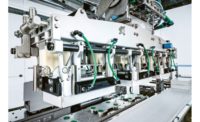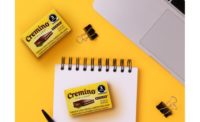When a leading UK exporter of sugar wanted to install the most robust, precise and reliable system for metal detection and checkweighing, it sought the expertise of Fortress Technology.
The customized solution, named “The Heracles,” checks for metal contaminants and verifies the weight of sugar sacks from 55 lbs. up to 110 lbs.
The client, who processes more than 1.4 million tons of sugar annually, had very detailed requirements. From the outset, the company was adamant it needed an entirely new inspection process to underpin its market-leading reputation for quality.
To develop the Heracles checkweigher and metal detector packaging inspection system, Fortress Technology sought the assistance of long-standing partner Sparc Systems. These companies are not strangers to working together. Several years ago these two inspection heavyweights designed and built the world’s first Ferrous-only five-lane multi-aperture metal detector checkweigher combination system.
Prior to the 2019 installation, the sugar manufacturer relied solely on a metal detector capable of identifying approximately 4.0mm ferrous metals, 5.0mm non-ferrous metals and 6.0mm stainless steel. As a result, addressing contaminant issues impacted the company’s productivity.
Due to the potential for metal contaminants to infiltrate the food chain, accuracy was paramount. Fortress beat out competition during product tests by proving its bulk Stealth metal detector could comfortably identify ferrous and non-ferrous particles down to 1.5mm and stainless steel down to 2.0mm in bags weighing up to 110 lbs. — sensitivities that are incomparable within the industry today. With no checkweighing process in place, concerns were also raised concerning product giveaway.
Meeting the gold standard
To increase and maintain safety and productivity, the sugar producer opted for a bespoke solution combining a high-spec checkweigher with a Fortress Stealth bulk metal detector.
“Our client implemented what they call a Gold Standard, a set of company-specific principles that they wanted to adhere to,” said Kevin Shackell, European sales manager. “So we created Heracles to make sure it met these criteria.”
Thanks to its fully-automated design, if a contaminant is detected, the bag is sent to the HACCP-compliant Roller Track Reject Station where the producer is able to remove the product and conduct a full investigation. The machine can differentiate between a metal and weight rejects; if it’s the latter, the producer simply reworks the product and sends it through to secondary packaging. The client has already reported significant improvements, diminishing the frequency of false rejects and waste while increasing detection sensitivity by more than 50 percent.
This performance was made more impressive by the checkweighing station, which verifies the weight of each bulk pack – in this case, 25kg (55 lbs) or 50kg (110 lbs). If required, the system will provide a control feedback message to upstream equipment used to portion the product, signaling it to increase or decrease the fill quantity accordingly.
“It’s quite rare that companies pack in 50kg bags due to directives about safe manual handling,” Shackell added. “Yet, the client uses this format for exporting, and we were able to deliver an automated solution that met their exact requirements.”
A single, clear, touch-screen HMI panel reduces downtime by generating constant feedback on operational statistics such as volume, weight and speed. Utilizing the principles of Industry 4.0, the data capture element is fully integrated, making it simple to send information directly to the server or wireless devices.
Since installing the machine, the client has reported improved yield, compliance with codes of practice and reduced giveaway.
Low-risk investment for high return
Another key criteria fulfilled by the UK-made Heracles is its ability to endure harsh environments. With any bulk application — be it spices, flour, breadcrumbs or sugar — powder and dust particles can build up in and around the equipment.
With this issue in mind, the system is fitted with a modular belt containing small holes for the product to fall through. The machine can withstand regular high-pressure washdowns, with removable parts enabling easy access for workplace operatives.
Payback for the system has already been extremely quick when combining reduced contaminant complaints, savings in product giveaway, increased productivity and OEE. Also, the electric design means that no compressed air is required.
“Overall, operating costs for the producer have been slashed, ensuring ROI in a very short space of time,” Shackell said.
As with all Fortress inspection systems, the Heracles includes the ‘Never Obsolete’ commitment. This means that should food safety standards set by the BRC, EFSIS (European Food Safety Inspection Service) and major retailers change, the system can easily be updated to the latest processing requirements, eradicating the need to invest thousands on new machinery.




